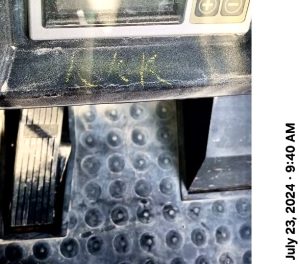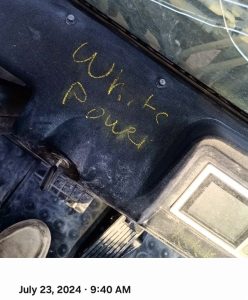A Patriot Contracting Superintendent subjected an employee to highly offensive racist and homophobic slurs—including the N word and “faggot”—and threats of violence, according to Charges of Discrimination filed with the Equal Employment Opportunity Commission (EEOC) by two former Patriot employees. When the employee’s colleague stood up for the victim, the Superintendent retaliated against him, including forcing the colleague to perform work that was inappropriate and painful given his previously-disclosed status as a cancer patient, according to his own EEOC Charge.
Twenty-year-old “Kevin” (a pseudonym) had worked for Patriot as an excavator operator for five months when he was transferred to a Reno, Nevada job site supervised by a Superintendent in October 2023. This was one of his first full-time jobs, having graduated high school in 2021. “Martin” (also a pseudonym), a former law enforcement officer and highly experienced construction equipment operator, worked onsite under the Superintendent as well. As explained in the EEOC Charge he filed on March 6, 2024, when he came on board with Patriot, Martin—a valuable prospective employee who had years of relevant experience—had made clear to General Manager Ritchie Jensen that to accept the construction equipment operator position, Patriot would have to guarantee Martin wouldn’t be forced to work as a laborer. Martin had disclosed that he was a cancer patient, taking a daily medication to manage his cancer, which made laborer work painful and infeasible; he further disclosed that a preexisting knee condition also made such work unacceptable. Jensen guaranteed that Martin would only be required to operate construction equipment, not to perform a laborer’s manual work.
Unfortunately, as soon as Kevin moved to the Superintendent’s crew, the Superintendent began making extremely offensive and upsetting anti-gay slurs and remarks. As outlined in Kevin’s EEOC Charge, on a near-daily basis, the Superintendent would use the slur “faggot”—saying “hello faggot,” “what a faggot,” and similar remarks to Kevin. Before long, the Superintendent also targeted Kevin, a Native Hawaiian man, with egregious racial slurs—calling him slurs including N*****, monkey, and coon on a daily basis. The Superintendent behaved erratically and threateningly—displaying a gun to Kevin and his coworkers while announcing “this is for anyone that wants to fuck around”—and once placing Kevin in a chokehold with no warning.

 Sexual Harassment Lawyer Blawg
Sexual Harassment Lawyer Blawg








